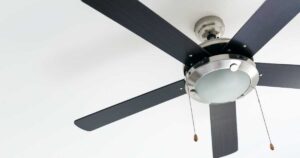Summer is the time for vacations, sleeping in, and a more laid-back schedule (at least for teenagers). In Arkansas, it’s also a time for heat waves, higher energy bills, and maxed out air conditioners. When summer temperatures frequently top 90°F, we’re all on the lookout for ways to stay cool, save energy, and save money on our energy costs. You’ve come to the right place. Read on for 5 energy-saving tips to keep your family cool and lower your bills this summer. Some of these tips may be familiar to you, others brand new, but they’re all effective ways to ensure you and your home stay cool all summer long.
Tip 1: Optimize Your Cooling System
We expect our air conditioner to take care of us during the hottest part of the year, but do we take care of it in return? Properly maintaining and cleaning your air conditioning unit and air filters is vital to its health and your comfort. Maintenance is a key part of optimizing your cooling system but also consider keeping the thermostat at an efficient temperature and utilizing fans and ventilation to supplement cooling throughout your home.
 Lamps and TV sets give off extra heat that your thermostat can sense, so it’s important to keep such things away from your thermostat to prevent your AC from running longer and costing you more money. Turning off your ceiling fans (fans cool people, not rooms) when you leave the room and using your bathroom fan to remove heat and humidity from your home during a bath or shower are both effective cooling strategies.
Lamps and TV sets give off extra heat that your thermostat can sense, so it’s important to keep such things away from your thermostat to prevent your AC from running longer and costing you more money. Turning off your ceiling fans (fans cool people, not rooms) when you leave the room and using your bathroom fan to remove heat and humidity from your home during a bath or shower are both effective cooling strategies.
Tip 2: Utilize Natural Cooling Methods
Creatively cool down your home with natural cooling methods such as the strategic use of windows and doors for cross ventilation. Window coverings, such as curtains and blinds, are a great way to create shade and prevent heat gain through your windows during the day. Consider opening your windows during cooler times of the day for a natural breeze and to give your AC a break. Even your landscaping can play a part in keeping you cool. Trees and bushes planted near your home will cast shade and prevent the direct sun from overheating your home throughout the day.
Tip 3: Efficiently Manage Your Home’s Indoor Temperature

Utilizing a zoned HVAC system is also a great way to target cooling in specific areas. Multiple thermostats are connected to multiple zones throughout your home and used to customize the temperature in individual rooms. These zoning systems are focused on keeping your entire family comfortable and saving money on your electricity bill.
Tip 4: Insulate Your Home
Your home is constantly losing valuable conditioned air through small air leaks throughout your house. Tiny crevices and cracks around windows, doors, and ductwork are notorious for allowing warm air to leak into your home and allowing treasured cool air to leak out. The best way to prevent such leaks and create more energy efficient windows and doors is to seal the air leaks. Spray foam insulation is an ideal way to effectively seal and insulate any leaks.
Insulation also plays a large part in improving your home’s energy efficiency and lowering its energy consumption. A well-insulated home doesn’t just keep you warm in the winter, it also prevents heat gain in the summer to keep your home cool and comfortable during the hottest part of the year. Enhancing or installing insulation in your attic, walls, and floors is a cost-effective and rewarding way to improve your home’s comfort while lessening the stress on your HVAC system and your wallet.
Tip 5: Use Energy-Efficient Appliances and Lighting
Your appliances and lighting can also increase your home’s energy efficiency this summer. Opting to install and use ENERGY STAR certified appliances and electronics helps you lessen your carbon footprint while saving money and energy. Switching to LED light bulbs that give off far less heat and last much longer than traditional incandescent bulbs, will also reduce your energy consumption.
Try some of these other ideas to conserve valuable energy: Unplug your cords or use power strips to prevent standby power drain, take advantage of natural light and turn out the lights when you leave a room, wash full loads of clothes and dishes (be sure to air dry your clothes when possible!) to save gallons of water, and set your hot water heater to a maximum of 120°.
Small Steps Can Lead to Big Results
We’ve found these energy-saving tips to be helpful and encouraging and we hope you have too. Our goal is to help you and your family have a cool summer and lower bills with a more energy efficient home. Finding productive ways to do that, by giving your HVAC system a break with proper maintenance, natural cooling methods, an efficient indoor temperature, proper insulation, and energy efficient appliances and lighting, will not only keep you cool this summer but make a difference throughout the entire year.
We encourage you to implement these tips in your home. Don’t forget that every little step you take to conserve energy in your home is a step in the right direction towards bettering our environment. Improving your home’s insulation is one of the biggest and most impactful steps you can take towards year-long energy savings. If you would like to learn more about the impact home insulation can have on your Arkansas home’s energy consumption and electric bill, contact us today.
